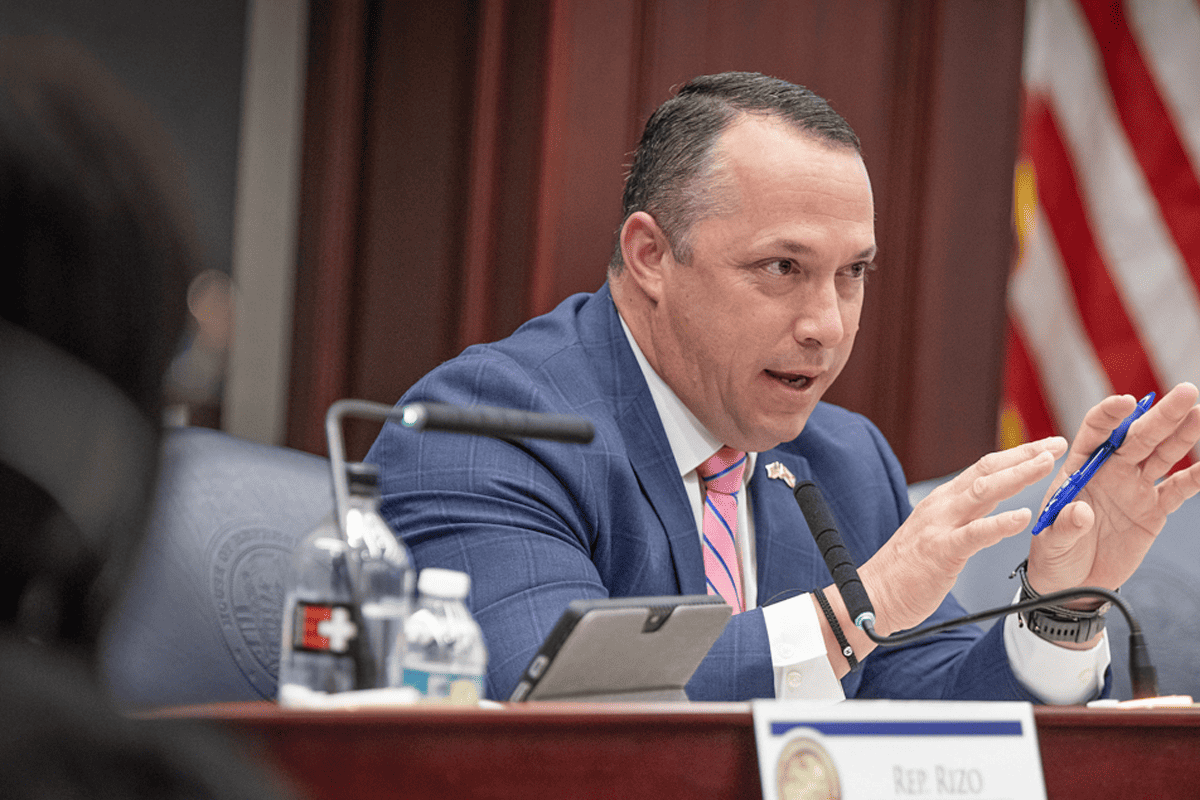Bill banning lab-grown meat, allowing EV charging station regulations clears committee

TALLAHASEE, Fla. – A Florida bill banning lab-grown meat, allowing the state to regulate electric vehicle charging stations and other provisions passed a House panel on Monday.
Rep. Danny Alvarez, R-Riverview, sponsored HB 1071. The Senate companion bill, SB 1041, was sponsored by Sen. Jay Collins, R-Tampa.
The House legislation passed the committee 9-3, with Reps. Hillary Cassel, D-Dania Beach, Lindsay Cross, D-St. Petersburg, and Dianne Hart, D-Tampa, voting against it.
Alvarez’s bill would specifically prohibit and create criminal and civil penalties for the production, sale and distribution of cultivated meats within the state.
In addition, the legislation provides the department flexibility for pest control certificate holders when it comes to the types of chemicals and equipment they are allowed to use.
Cassel asked Alvarez how banning cultivated meat manufacturing would impact the incentive for Florida universities to study and develop the product.
Alvarez responded by explaining that there would be no significant fiscal or technological impact on the state if the bill was enacted.
“Most scientists and most manufacturers are telling me that a a marketable, manufacturing economy for cultivated protein is still many, many years away, with research leading the way on how to make sure it gets to efficiencies and economies of scale,” he responded.
Cross expressed concerns about the charging stations and the accessibility of them for those with electric vehicles.
“Do you see this preemption potentially harming both local businesses and state revenue as EVs eventually become the dominant market player?” she asked.
Alvarez said that although Cross brought up a valid concern, the bill would not cause a negative impact and instead make it easier for businesses and localities due to the universality of the legislation.
“So what we’re going to do is we’re going to have the same kind of philosophy and that way the rules in Hillsborough are the same as the rules in Miami or the same as the rules in Duval County,” he said. “And that way businesses can operate, they can flourish…”
Kim Ross, the executive director of Rethink Energy Florida, argued that the bill’s preemption on the vehicle charging stations “clearly” showed private sector influences effecting the legislation.
He also explained that because of the size and diversity of the state, leaving the vehicle charging station regulations up to local governments was the more desirable option.
A representative from Gen CLEO, the youth movement of the Climate Leadership Engagement Opportunities Institute, also spoke against the bill.
“However you define freedom, the standard of freedom as defined by bill 1071 is not centered around residential, environmental or consumer interests,” he said.
Justin Kolbeck, the cofounder of Wildtype, a cultivated seafood company, warned of the economic impact that banning cultivated meats would have on Florida.
“Far from protecting American jobs, banning cultivated seafood in the United States will deepen our countries dependence on imports from countries like China,” Kolbeck said.
He also compared the regulation of the industry as an action that goes against free market principles, similar to what the Soviet Union did.
Rep. Thad Altman, R-Indialantic, argued that more people in the traditional meat production industry should speak up against the bill in the future.
“The Florida agriculture industry has a huge impact on our economy,” Altman said. “It also has a huge impact on our environment. And I believe that the only way we’re going to preserve our natural environment is to have an active and vibrant agricultural industry.”
Alvarez responded to some of there criticisms the bill faced during public testimony, particularly relating to cultivated meats.
“They tell us consumers should decide and I’d tell you they’re right,” Alvarez said. “But right now we don’t have the information for a consumer to make an educated and informed consensual decision.”
He argued the severe uncertainty of lab grown meat and the process by which it is produced.
“But until we have long-term studies that tell me what lab grown, immortalized cells do to your body, I challenge you to put it into your child,” he said. “I ask you, are you willing to risk Floridians for their dollars.”
“It’s not that Florida is closed for business, heck, Florida is business,” Alvarez continued. “Florida is closed for experimentation on our citizens.”



